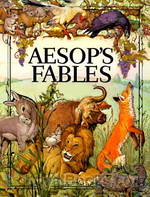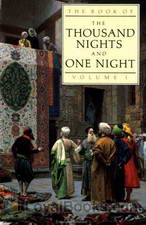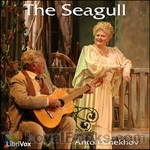|
Books Should Be Free Loyal Books Free Public Domain Audiobooks & eBook Downloads |
|
|
Books Should Be Free Loyal Books Free Public Domain Audiobooks & eBook Downloads |
|
Books on Languages |
|---|
Book type:
Sort by:
View by:
|
By: Aeschylus (c. 525/524-456/455 BC) | |
|---|---|
 Prometheus Bound (Buckley Translation)
Prometheus Bound (Buckley Translation)
"Prometheus Bound" is the only complete tragedy of the Prometheia trilogy, traditionally assumed to be the work of Aeschylus. Jupiter has turned against Prometheus for protecting mankind and has ordered him to be chained to a rock. But Prometheus is comforted by his knowledge of a way to bring about the downfall of Jupiter. | |
By: Anonymous | |
|---|---|
 How to Write a Novel
How to Write a Novel
I address myself to the man or woman of talent—those people who have writing ability, but who need instruction in the manipulation of characters, the formation of plots, and a host of other points with which I shall deal hereafter. Although no school could turn out novelists to order there is yet enough common material in all art-work to be mapped out in a course of lessons. I shall show that the two great requisites of novel-writing are (1) a good story to tell, and (2) ability to tell it effectively... | |
By: Apollonius Rhodius (3rd Cent. -3rd Cent.) | |
|---|---|
 Argonautica
Argonautica
The story of how Jason and a group of famous heroes of Greece took to sea in the Argos has been told many times, before and after Apollonius of Rhodes, wrote his Argonautica, in the 3rd century b.C.. It is not only the oldest full version of the tale to arrive to our days, but also the only extant example of Hellenistic epic. This was already a popular myth by the times of Apollonius, who makes the story of how Jason and the Argonauts sail to Colchis in search of the Golden Fleece, and have to go through a lot of adventures to fulfill their task, a mix of simple narrative and scholarly catalog. The Argonautica had a deep impact on European literature as a whole. | |
By: Aristophanes (446-389 BCE) | |
|---|---|
 Frogs
Frogs
Athens is in a sorry state of affairs. The great tragedian, Euripides, is dead, and Dionysus, the god of the theater, has to listen to third-rate poetry. So, he determines to pack his belongings onto his trusty slave, Xanthias, and journey to the underworld to bring back Euripides! Hi-jinks ensue. | |
By: Confucius 孔子 (551-479 BCE) | |
|---|---|
 Analects of Confucius
Analects of Confucius
The Analects, or Lunyu, also known as the Analects of Confucius, are considered a record of the words and acts of the central Chinese thinker and philosopher Confucius and his disciples, as well as the discussions they held. Written during the Spring and Autumn Period through the Warring States Period (ca. 475 BC - 221 BC), the Analects is the representative work of Confucianism and continues to have a substantial influence on Chinese and East Asian thought and values today. William Jennings was a rector of Grasmere, and late colonial chaplain. He served at St. John's Cathedral in Hong Kong. | |
By: Cuey-na-Gael (1858-1937) | |
|---|---|
 Irishman's difficulties with the Dutch language
Irishman's difficulties with the Dutch language
Jack O'Neill, an Irishman, has just returned from a month's holiday in The Netherlands. Before he left, he had boasted to his friends that he would learn the Dutch language within a fortnight. On his return, he has to admit that it wasn't quite that easy... He tells his friends stories about his clumsy attempts to speak Dutch, leading to many funny scenes.This audiobook contains both "An Irishman's difficulties with the Dutch language" and its sequel "Jack O'Neill's further adventures in Holland"... | |
By: Elias Lönnrot (1802-1884) | |
|---|---|
 Kalevala, The Land of the Heroes (Kirby translation)
Kalevala, The Land of the Heroes (Kirby translation)
The Kalevala is a 19th-century work of epic poetry compiled by Elias Lönnrot from Karelian and Finnish oral folklore and mythology. It is regarded as the national epic of Karelia and Finland and is one of the most significant works of Finnish literature. The Kalevala played an instrumental role in the development of the Finnish national identity, the intensification of Finland's language strife and the growing sense of nationality that ultimately led to Finland's independence from Russia in 1917... | |
By: Euripides (484 BC - 406 BC) | |
|---|---|
 Iphigenia in Tauris (Murray Translation)
Iphigenia in Tauris (Murray Translation)
The apparent sacrifice of Iphigenia at Aulis by her own father Agamemnon was forestalled by the godness Artemis, who by an adroit sleight of hand that fooled all participants, substituted a deer for the daughter. Wafted magically away to the “Friendless Shores” of savage Tauris and installed as chief priestess presiding over the human sacrifice of all luckless foreigners, Iphigenia broods over her “murder” by her parents and longs for some Greeks to be shipwrecked on her shores so she can wreak a vicarious vengeance on them... | |
 Alcestis
Alcestis
Alcestis is the earliest surviving play by Euripides. Alcestis, the devoted wife of King Admetus, has agreed to die in his place, and at the beginning of the play she is close to death. In the first scene, Apollo argues with Thanatos (Death), asking to prolong Alcestis' life, but Thanatos refuses. Apollo leaves, but suggests that a man will come to Pherae who will save Alcestis. Euripides' play is perhaps the most unusual Greek drama ever written: a tragedy that is not a tragedy. | |
By: Hesiod | |
|---|---|
 Works and Days, The Theogony, and The Shield of Heracles
Works and Days, The Theogony, and The Shield of Heracles
Works and Days provides advice on agrarian matters and personal conduct. The Theogony explains the ancestry of the gods. The Shield of Heracles is the adventure of Heracles accepting an enemy's challenge to fight. | |
By: Plato (Πλάτων) (c. 428 BC - c. 347 BC) | |
|---|---|
 Republic (version 2)
Republic (version 2)
The Republic is a Socratic dialogue written by Plato around 380 BC concerning the definition of justice and the order and character of the just city-state and the just man. It is Plato's best-known work and has proven to be one of the most intellectually and historically influential works of philosophy and political theory. In it, Socrates along with various Athenians and foreigners discuss the meaning of justice and examine whether or not the just man is happier than the unjust man by considering a series of different cities coming into existence "in speech", culminating in a city (Kallipolis) ruled by philosopher-kings; and by examining the nature of existing regimes... | |
 Gorgias
Gorgias
This dialogue brings Socrates face to face with the famous sophist Gorgias and his followers. It is a work likely completed around the time of "Republic" and illuminates many of the spiritual ideas of Plato. The spirituality, as Jowett points out in his wonderful introduction, has many ideas akin to Christianity, but is more generous as it reserves damnation only for the tyrants of the world. Some of the truths of Socrates, as presented by Plato, shine forth in this wonderful work on sophistry and other forms of persuasion or cookery. | |
 Protagoras
Protagoras
Jowett, in his always informative introduction, sees this dialogue as transitional between the early and middle dialogues. Socrates meets with Protagoras and other sophists and pursues his inquiry into virtue. The dialectic brings the thinkers to a surprising ending. Socrates narrates this dialogue. | |
 Critias
Critias
This is an incomplete dialogue from the late period of Plato's life. Plato most likely created it after Republic and it contains the famous story of Atlantis, that Plato tells with such skill that many have believed the story to be true. Critias, a friend of Socrates, and uncle of Plato was infamous as one of the bloody thirty tyrants. | |
 Alcibiades I
Alcibiades I
As Jowett relates in his brilliant introduction, 95% of Plato's writing is certain and his reputation rests soundly on this foundation. The Alcibiades 1 appears to be a short work by Plato with only two characters: Socrates and Alcibiades. This dialogue has little dramatic verisimilitude but centres on the question of what knowledge one needs for political life. Like the early dialogues, the question is on whether the virtues needed by a statesman can be taught, on the importance of self-knowledge as a starting point for any leader... | |
 Lesser Hippias
Lesser Hippias
This work may not be by Plato, or his entirely, but Jowett has offered his sublime translation, and seems to lean towards including it in the canon. Socrates tempted by irony to deflate the pretentious know-it-all Hippias, an arrogant polymath, appears to follow humour more than honour in this short dialogue. | |
By: Pliny the Younger (61 - ca. 112) | |
|---|---|
 Letters of Pliny
Letters of Pliny
The largest surviving body of Pliny's work is his Epistulae (Letters), a series of personal missives directed to his friends, associates and the Emperor Trajan. These letters are a unique testimony of Roman administrative history and everyday life in the 1st century CE. Especially noteworthy among the letters are two in which he describes the eruption of Mount Vesuvius in August 79, during which his uncle Pliny the Elder died (65 and 66 in this edition), and one in which he asks the Emperor for instructions regarding official policy concerning Christians (Trajan Letter 97)... | |
By: Raphael Kühner (1802-1878) | |
|---|---|
 Elementary Greek Grammar
Elementary Greek Grammar
We have followed the Grammars of Kühner, known as his "Large" and "School" Grammars. [...] Omitting the learned dissertations and numerous details of the original, we have endeavored to furnish to the student, in a concise and simple form, whatever is of general application." (From the Foreword by Charles O'Leary) | |
By: Van Wyck Brooks (1886-1963) | |
|---|---|
 The Ordeal of Mark Twain (Version 2)
The Ordeal of Mark Twain (Version 2)
The Ordeal of Mark Twain analyzes the literary progression of Samuel L. Clemens and attributes shortcomings to Clemens' mother and wife. The Encyclopaedia Britannica says, Brooks' work "was a psychological study attempting to show that Twain had crippled himself emotionally and curtailed his genius by repressing his natural artistic bent for the sake of his Calvinist upbringing." Also, Brooks says, his literary spirit was sidelined as "...Mark Twain was inducted into the Gilded Age, launched, in defiance of that instinct which only for a few years was to allow him inner peace, upon the vast welter of a society blind like himself, like him committed to the pursuit of worldly success... | |
By: Virgil (70 BC - 19 BC) | |
|---|---|
 Aeneid, prose translation
Aeneid, prose translation
The Aeneid is the most famous Latin epic poem, written by Virgil in the 1st century BC. The story revolves around the legendary hero Aeneas, a Trojan prince who left behind the ruins of his city and led his fellow citizens to Italy, where he became the ancestor of the Romans. The first six of the poem’s twelve books tell the story of Aeneas’ wanderings from Troy to Italy, while the poem’s second half treats the Trojans’ victorious war upon the Latins. This is the recording of J.W.MacKail's prose translation. | |
By: Aesop (620 BC - 563 BC) | |
|---|---|
 Aesop's Fables
Aesop's Fables
As children, our first experience of the magic of talking animals, the conflict between good and evil, the battle of wits between the cunning and the innocent most probably came from Aesop's Fables. These delightful, pithy and brief narratives are simple, easy to understand and convey their message in a memorable and charming fashion. Aesop's Fables by Aesop consists of about 600 tales, some well-loved and familiar, others less known but just as entertaining and educative and help us map the perimeters of our moral universe... | |
By: Alexander Pushkin (1799-1837) | |
|---|---|
 Daughter of the Commandant
Daughter of the Commandant
"The Daughter of the Commandant" (better known as "The Captain's Daughter") is a historical novel by the Russian writer Alexander Pushkin, and is considered to be his finest prose work. The novel is a romanticized account of Pugachev's Rebellion in 1773-1774. The 17-year-old Pyotr Andreyich is sent by his father to military service in a remote Russian outpost, where he leans honor and love while being caught up in a violent uprising of tribal groups against the imperial government. | |
By: Alfred Ayres (1826-1902) | |
|---|---|
 The Verbalist
The Verbalist
Ayres arranges usage problems alphabetically and treats certain areas in greater detail as he sees fit. For example, his first entry is A-AN (articles). His second is ABILITY-CAPACITY, in which he distinguishes between the meanings. The alphabetical arrangement continues through to YOURS. (Introduction by Bill Boerst) | |
By: Andrew Lang (1844-1912) | |
|---|---|
 The Arabian Nights
The Arabian Nights
The Arabian Nights is a collection of Perso-Arabic folk tales and other stories. The collection, or at least certain stories drawn from it (or purporting to be drawn from it), became widely known in the West from the 18th century, after it was translated from the Arabic — first into French and then into English and other European languages. The first English language edition, based on Galland’s French rather than the original Arabic, rendered the title as The Arabian Nights’ Entertainment – and this, or simply The Arabian Nights, has been the title by which it has been best known to English-speaking people ever since. | |
By: Anonymous (1821-1890) | |
|---|---|
 The Book of A Thousand Nights and a Night
The Book of A Thousand Nights and a Night
This is a collection of stories collected over thousands of years by various authors, translators and scholars. The are an amalgam of mythology and folk tales from the Indian sub-continent, Persia, and Arabia. No original manuscript has ever been found for the collection, but several versions date the collection’s genesis to somewhere between AD 800-900. The stories are wound together under the device of a long series of cliff-hangers told by Shahrazad to her husband Shahryar, to prevent him from executing her... | |
 English as She is Wrote
English as She is Wrote
"...Showing Curious ways in which the English Language may be made to convey Ideas or obscure them." A collection of unintentionally humorous uses of the English language. Sections of the work: How she is wrote by the Inaccurate, By Advertisers and on Sign-boards, For Epitaphs, By Correspondents, By the Effusive, How she can be oddly wrote, and By the Untutored. | |
 My Very First Little German Book
My Very First Little German Book
An adorable picture book with 29 little lessons in German. Learn many simple and useful phrases, such as "How big the sea is!" and "Have you ever been to the farm?" The English parts of the book are read by Kara, and the German parts by Elli. | |
By: Anton Chekhov (1860-1904) | |
|---|---|
 The Seagull
The Seagull
The Seagull (Russian: Чайка, Chayka) is the first of what are generally considered to be the four major plays by the Russian dramatist Anton Chekhov. The play was written in 1895 and first produced in 1896. It dramatises the romantic and artistic conflicts between four characters: the ingenue Nina, the fading leading lady Irina Arkadina, her son the experimental playwright Konstantin Treplyov, and the famous middlebrow story writer Trigorin. | |
 The Cherry Orchard
The Cherry Orchard
The Cherry Orchard is Russian playwright Anton Chekhov's last play. It premiered at the Moscow Art Theatre 17 January 1904 in a production directed by Constantin Stanislavski. Chekhov intended this play as a comedy and it does contain some elements of farce; however, Stanislavski insisted on directing the play as a tragedy. Since this initial production, directors have had to contend with the dual nature of this play. The play concerns an aristocratic Russian woman and her family as they return to the family's estate (which includes a large and well-known cherry orchard) just before it is auctioned to pay the mortgage... | |
 Uncle Vanya
Uncle Vanya
Uncle Vanya (subtitled “Scenes From Country Life”) is a tragicomedy by Anton Chekhov. It is set on the failing country estate of a retired professor, Serebrakoff, who returns after a long absence with his beautiful young wife, and throws the household into confusion. Rivalry, unrequited love, illicit romance, and attempted suicide are the result, punctuated throughout by Chekhov’s sad, wistful humor. | |
 Swan Song
Swan Song
In 'The Swan Song' an aging actor reminisces about his life and the parts he's played. The piece takes a tragic look at ambition and the sacrifices that must be made in order to succeed. Chekhov’s ability to capture and explore human nature and experience is showcased here. | |
 House With The Mezzanine And Other Stories
House With The Mezzanine And Other Stories
Six short stories and a novella by the Russian master. (david wales) | |